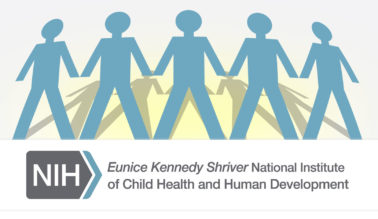Global named Friend of National Institute of Child Health and Development

Global is honored to be recently accepted into the coalition of The Friends of the Eunice Kennedy Shriver National Institute of Child Health and Human Development (NICHD). The coalition recently urged House and Senate leaders to support an additional $2 billion for the National Institutes of Health over fiscal year (FY) 2017, including an amount for NICHD in FY 2018.
Below is a letter from Global President and CEO Michelle Sie Whitten to the Subcommittee on Labor, Health and Human Services, Education, and Related Agencies Senate Committee on Appropriations — specifically committee members US Senator Roy Blunt, US Representative Tom Cole, US Senator Patty Murray, and US Representative Rosa DeLauro. The letter calls for more research funding for National Institute of Child Health and Human Development, the main source of funding for Down syndrome.
Dear Chairmen Blunt and Cole and Ranking Members Murray and DeLauro:
The Global Down Syndrome Foundation (Global), as a member of the Friends of the Eunice Kennedy Shriver National Institute of Child Health and Human Development (NICHD), urges you to support an additional $2 billion for the National Institutes of Health (NIH) over fiscal year (FY) 2017, including a proportionate amount for NICHD in FY 2018. The Friends of NICHD is a coalition of over 100 organizations representing scientists, physicians, health care providers, patients, and parents concerned with the health and welfare of women, children, families, and people with disabilities. Global is honored to advocate for people with Down syndrome and their families as part of this group and to support the extraordinary work of NICHD.
As the leader for both research and medical care benefiting people with Down syndrome, the Global Down Syndrome Foundation strongly supports the NICHD’s mission, which includes research on child development before and after birth, learning and language development, and medical rehabilitation. This research is helping shed light on the causes and treatments for millions of people worldwide suffering from life-threatening and debilitating diseases, disorders, and disabilities. The NICHD is currently the leading Institute for Down syndrome research, which translates to important findings that not only improve the health of individuals with this condition, but offers important scientific developments for millions of typical individuals.
Individuals with Down syndrome have a unique disease spectrum that requires them to have specialty care throughout their lifetime. They are protected from some conditions relative to the general population, like solid tumor cancers and stroke; conversely, they are at greater risk for developing other conditions including congenital heart conditions, Alzheimer’s disease, certain blood cancers, thyroid dysfunction, vision and hearing problems, and autoimmune disorders. About 30% of people with Down syndrome also experience mental illnesses such as depression, obsessive-compulsive disorder, and conduct disorder, a rate which is notably higher than the general population. Thanks to advances in research and medical care, people with Down syndrome are living longer than ever: life expectancy has increased from 25 years in 1983 to 60 years today. While this is encouraging, it also presents new challenges in later in their lives.
Given the unique disease spectrum and medical needs of individuals with Down syndrome, additional federal research is needed to advance our understanding of this condition and related co-morbid conditions. According to the most recent data from the National Institutes of Health, federal funding for Down syndrome research totaled $24 million in FY 2015, approximately 0.015% of funding provided for research on over 250 diseases and conditions. Furthermore, research on Down syndrome may yield valuable information on how to protect the general population from diseases and conditions to which those with DS are predisposed or from which they are protected.
With sustained support in FY 2018, the NICHD will be able to continue funding research and research training activities to advance not only Down syndrome research but improve the health and well-being of mothers, children, and families, more broadly. We thank you for your longstanding support of the NIH and encourage you to make the NICHD a top priority as you work on the FY 2018 Labor-HHS appropriations bill.
Sincerely,
Michelle Sie Whitten

 Experience our inspirational and groundbreaking videos and photos. Our children and self-advocates are beautiful AND brilliant!
Experience our inspirational and groundbreaking videos and photos. Our children and self-advocates are beautiful AND brilliant! Make sure your local Representatives are on the Congressional Down Syndrome Task Force.
Make sure your local Representatives are on the Congressional Down Syndrome Task Force.